Search Results
Showing results 381 to 400 of 719
Butterflies in Space
Source Institutions
The Butterflies in Space Teacher's Guide uses "life in space" to encourage learners to conduct their own open-ended scientific investigations.

What's in a Penny?
Source Institutions
In this chemistry activity, learners use chemical reactions to observe the composition of an alloy.
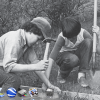
Trail Construction
Source Institutions
In this highly physical outdoor activity, learners construct and compare experimental trail sections to select the best trail-construction technique for their site.
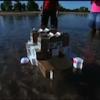
Milk Carton Boats
Source Institutions
This activity (on page 2 of the PDF SciGirls Activity: Milk Carton Boat) is a full inquiry investigation into boat hull design.

Make a Model of a Home Made From Shipping Containers
Source Institutions
In this activity, learners watch a video to learn about a couple who built a home out of shipping containers in Brooklyn, New York.

Shimmering Lenses
Source Institutions
In this activity, learners use Jell-O to explore lenses. Learners cut Jell-O into convex and concave lens shapes and examine how light exits each lens in a darkened room.
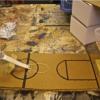
Finger Basketball
Source Institutions
In this activity, learners build mini-basketball courts using cardboard and measuring spoons. Use this activity to introduce learners to catapults, forces, and levers.

Community Wind Project
Source Institutions
In this thought-provoking activity, learners plan a hypothetical project to build and operate wind turbines in their community.

Weather Vane
Source Institutions
In this meteorology activity, learners build weather vanes using straws, paperclips, and cardstock.

Production of Carbon Dioxide
Source Institutions
In this chemistry activity, learners use common chemicals to produce carbon dioxide and observe its properties. This resource includes brief questions for learners to answer after the experiment.

pH Scale
Source Institutions
In this online interactive simulation, learners will test the pH of liquids like coffee, spit, and soap to determine whether each is acidic, basic, or neutral.
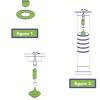
Roller Coaster Design
Source Institutions
This activity (on page 3 of the PDF under GPS: Roller Coaster Design Activity) is a full inquiry investigation into g-force and acceleration.

Lift Off!
Source Institutions
This activity (on page 2 of the PDF under SciGirls Activity: Lift Off) is a full inquiry investigation into the engineering challenges of sending scientific sensors into space.

Moving and Working in Space
Source Institutions
In this activity, groups of four learners must complete a set of four manual tasks. The restrictions are that they must complete the tasks in a limited time while wearing garden or rubber gloves.

Neato-Magneto Planets
Source Institutions
In this activity, teams of learners study magnetic fields at four separate stations: examining magnetic fields generated by everyday items, mapping out a magnetic field using a compass, creating model

Bridge Building
Source Institutions
This is a quick activity (on page 2 of the PDF under Hockey Sticks Activity) about how the arrangement of carbon atoms determines carbon's different properties.

Seeing the World Through a Different Lens
Source Institutions
Learners participate in a variety of activities modeling different disabilities.

A Closer Look at Crystals
Source Institutions
In this activity, learners compare different types of salt crystals under a magnifying glass.
Build A Hydrometer
Source Institutions
In this activity, learners will explore how a hydrometer works by building a working model and conducting experiments.
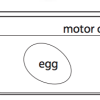
There’s Oil in My Eggs
Source Institutions
In this activity, learners investigate the impact of oil pollution on the environment and wildlife. Learners use hard-boiled eggs and feathers to understand the damage that oil spills can cause.
